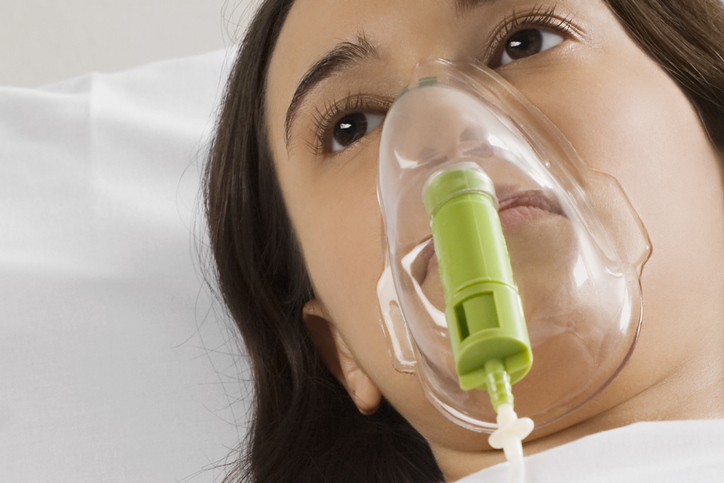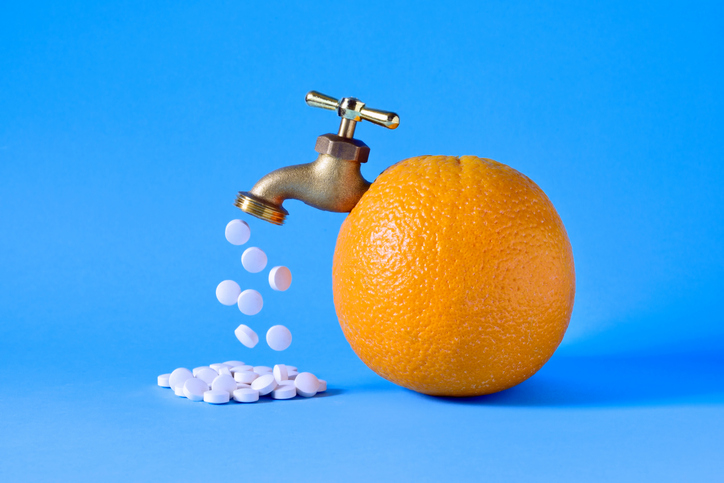Vitamin C May Breathe Life Into Patients On Breathing Machines

I don’t like to play favorites with my nutrients because they are all equally important to our health and wellness. For example, we need macronutrients (which are necessary in larger quantities) and micronutrients (in smaller quantities).
Macronutrients include protein, carbohydrates, fats and water. Micronutrients include vitamins and minerals. All together, these are the six essential nutrients we need to live and be physically and mentally fit.

But of all the micronutrients (the vitamins and minerals), the power of vitamin C never ceases to amaze me.
For example, vitamin C may:
And now, a recent study found evidence which suggested that giving vitamin C to critically ill patients using breathing machines shortened the duration that these patients had to use mechanical ventilation.
According to one report discussing the study, in regards to 471 patients needing ventilation for over 10 hours, vitamin C shortened the ventilation time on average by 25 percent.
“In randomized trials, vitamin C has lowered blood pressure, decreased the incidence of atrial fibrillation [a quivering or irregular heartbeat] and decreased bronchoconstriction [narrowing of the airways in the lungs]. A previous meta-analysis of 12 controlled trials found that vitamin C reduced ICU stay on average by 8%.”
So basically, vitamin C has the potential to be lifesaving!
“In healthy people, 0.1 grams per day of vitamin C is usually sufficient to maintain a normal plasma level. However, much higher doses, in the order of grams per day, are needed for critically ill patients to increase their plasma vitamin C levels to within the normal range,” according to the report.
And don't believe those medical professionals who tell you to just eat fruits and vegetables or take supplements to ensure adequate levels of vitamin C.
Many medical professionals advise consumers to simply eat vitamin c rich foods or take supplements in order to maintain a healthy balance of vtamin C. Unfortunately, this advice can be misleading. Why? Here are a few reasons:
- As we age, our ability to absorb nutrients such as vitamin C from food is usually reduced.
- Genetic abnormalities may impact our ability to absorb vitamin C from food sources.
- Certain medications may negatively impact our vitamin C levels.
- Many people may over cook their vegetables and destroy the vitamin C.
- When we are sick or recovering from surgery, our need for vitamin C may increase.
- If we have metabolic syndrome, we may need more vitamin C than the average person.
- Smoking and excessive alcohol consumption are also great ways to increase our risk of developing a vitamin C deficiency.
So if you are caring for a loved one in critical care on mechanical ventilation, speak with the doctor about testing vitamin C levels and the possibility of administering more vitamin C.
This essential nutrient could make a world of difference in your loved one’s recovery, especially if it can help prevent irregular heartbeat and reduce the narrowing of airways in the lungs.
It is also important to acknowledge that perfectly healthy people, like myself, may need more vitamin C than usual. You can read all about my inevitable nutrient absorption issues with vitamin C here.
In order to address this, I take advantage of IV vitamin drips at the pH Drip Lab on a monthly basis. At the pH Drip Lab, we offer all sorts of vitamin “cocktails.” My go-to is the “Pick Me Up Buttercup,” which is an injection of 1,000 mg of vitamin C. I believe this has helped to boost my immunity, energy and good health and protect me from infections and viruses for the past decade.
Some delicious foods that are rich in vitamin C (and other essential vitamins and minerals) include oranges, kiwi, lemon, grapefruit, bell peppers, strawberries, tomatoes, broccoli, cabbage and cauliflower. These are all good options for those who are able to absorb this critical nutrient from these foods.
We never know what health issues life may bring. I’m sure that most people in critical care did not expect that they would end up there. If we make sure that we maintain proper nutritional balance by assessing our nutrient levels, making dietary changes and implementing supplementation if necessary (per the advice of a competent healthcare professional), the more likely we will be able to better overcome health obstacles.
And while you may be battling sickness, medication is going to likely be a major, dominant part of the treatment plan. But don’t forget that nutrition is just as important. It could even save your life.
So speak up and don't ignore the importance of vitamin C, especially if you are about to have surgery or are currently in critical care.
(For more information about vitamin C, read here).
Enjoy your healthy life!
The pH professional health care team includes recognized experts from a variety of health care and related disciplines, including physicians, attorneys, nutritionists, nurses and certified fitness instructors. This team also includes the members of the pH Medical Advisory Board, which constantly monitors all pH programs, products and services. To learn more about the pH Medical Advisory Board, click here.







